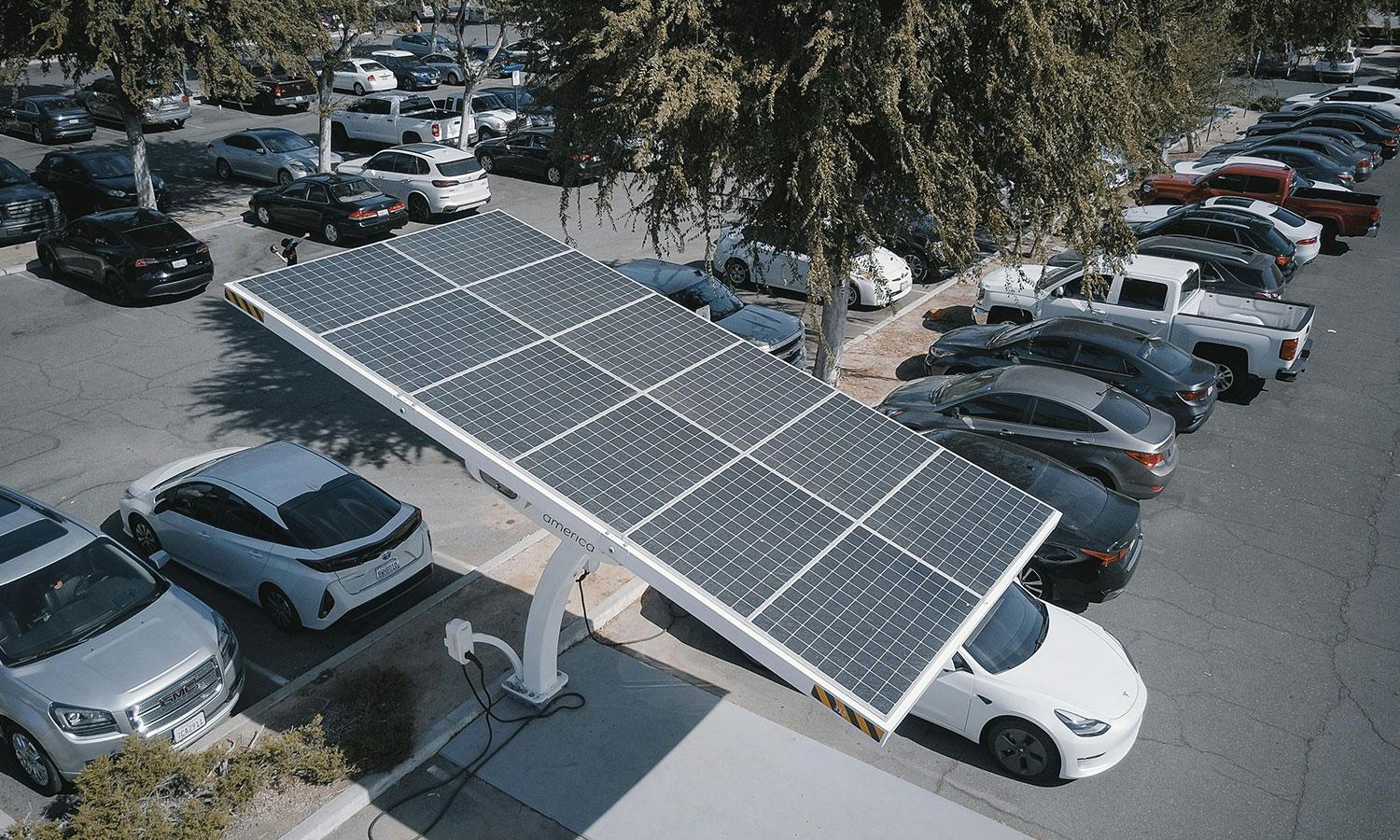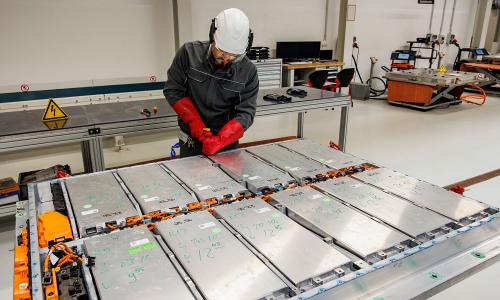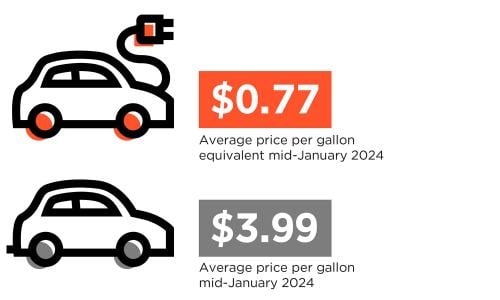Electrifying the transportation sector is a necessary step to mitigate the effects of climate change.
That’s because the transportation sector is responsible for almost 30 percent of heat-trapping greenhouse gas emissions in the United States. A fair and fast phaseout of fossil fuels will require that we electrify the ways we get around if we’re going to have a fighting chance. It also means that we need to take electric vehicle (EV) battery recycling very seriously.
Why do we need an EV battery recycling policy?
Thanks to advances in technology, nearly 100 different models of EVs are available for purchase today, with more coming in the next few years. EVs are powered by electricity which is stored within battery packs. The batteries are assembled from materials such as lithium, cobalt, and nickel, meaning this transition to EVs will require an increase of these minerals to power the electric cars, trucks, and buses that will be on tomorrow’s roads.
EVs typically stay on the road for about 10-15 years, but the battery can have an even longer lifespan. An EV will typically retire when the battery is at about 70- 80 percent of the original rated capacity. If in good condition, the battery can be removed from an EV after and reused for other purposes like stationary energy storage prior to recycling. The materials recovered from recycling can be used to manufacture new batteries, therefore reducing the amount of newly-mined materials necessary to meet upcoming mineral demand. This is especially critical because while there are only about 1.4 million EVs on the road in the United States today, that number will continue to increase. With more EVs on the road, the demand for battery materials will grow and recycling could meet a measurable amount of demand as more EVs retire. Research shows there are enough explored or prospective reserves of minerals to electrify the global transportation sector using current technology if a high amount of battery recycling occurs.

Policy is critical in getting it right
In the transition away from fossil fuels, we have a substantial opportunity to get policies right. That means —smart policies around the reuse and recycling of EV batteries that reduce demands for material demand and mining in the future. As EV sales grow, proper reuse and recycling of the batteries and materials they’re made from will require proactive, science-based policy to create a sustainable and ethical electrified transportation system. The type of recycling also matters. Policy and regulation is important to ensure high recovery rates of key minerals and low environmental and community impacts.
For example, we need policies that ensure that all EV batteries are safely managed at their end of life and that materials can be recovered. If recycling requirements are not enacted, there is the possibility of batteries being inappropriately disposed of or scrapped.
An “Extended Producer Responsibility” (EPR) approach could address this. An EPR program assigns the recycling responsibility to the manufacturers who design and produce these batteries, and mitigates the burden on individual owners, small businesses, and disassemblers and facilitating a centralized and more sustainable recycling process. This model also promotes environmental accountability from the onset of production and aligns with precedents set in the European Union and recycling initiatives for other products like mattresses, paint, and carpet. Centralized responsibility can also help ensure that end-of-life batteries are handled efficiently and safely, help drive down recycling costs, and support the broader goal of sustainable electrification of transportation.
The Union of Concerned Scientists (UCS) supports EPR as a crucial step toward creating a circular economy in the transportation sector, reducing the demand for raw materials, and minimizing environmental impact. UCS suggests that an EPR with a recycling recovery rate and increased community protections is enacted to ensure all batteries are recycled and to drive recycling costs down. This is essential for reducing the amount of mining needed to electrify our transportation system over the next several decades.




